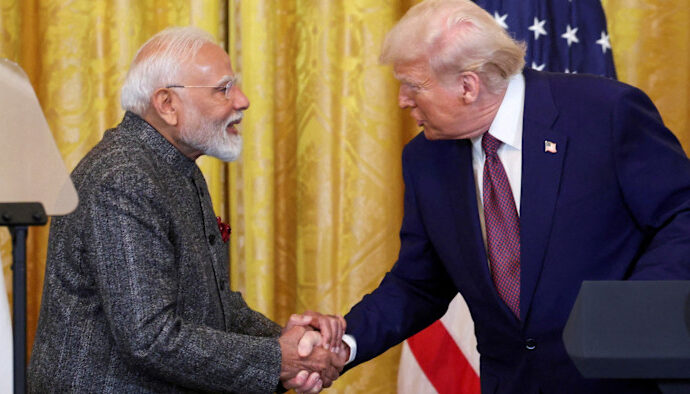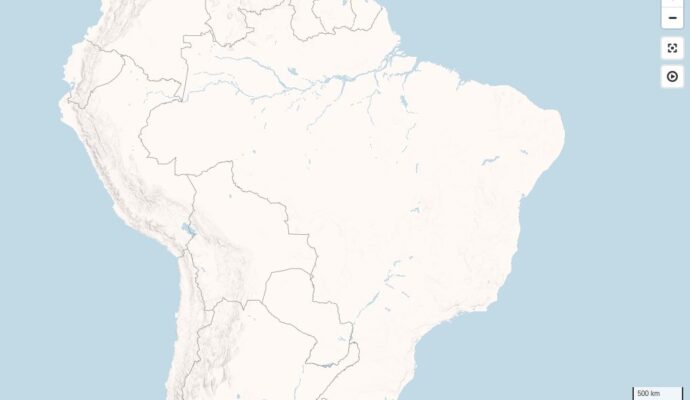Unlock the Editor’s Digest for free
Roula Khalaf, Editor of the FT, selects her favourite stories in this weekly newsletter.
Toyota Industries shares fell 12 per cent on Wednesday as minority shareholders lambasted a proposed $33bn privatisation as severely undervaluing the car parts supplier and trampling over their rights.
The deal to delist the 99-year-old supplier of forklifts, car parts and textile looms, which Toyota Motor was spun out of in 1937, has provoked outrage, with shareholders warning that the allegedly unfair price and lack of transparency were a setback to Japan’s decade-long progress in corporate governance reforms.
“Toyota Industries’ directors have behaved shamelessly . . . they have given the fox access to the hen house,” said Drew Edwards, head of Japan equities at asset manager GMO, which has held less than 1 per cent of the company for more than 10 years.
“The governance risks at Toyota Industries have been evident for a long time and were discounted into the valuation as we invested. But this proposal is even worse than I considered it could be,” he added.
“I’ve got an inbox full of investors who are absolutely livid about this — and they should be,” said another investor in the Toyota supplier. Others said it was “completely unacceptable” and minorities were “absolutely screwed” under the deal terms.
Shares in Toyota Industries, also known as TICO, closed down at ¥16,200 a share on Wednesday, falling below the offer price of ¥16,300 — a level at which activists could enter the shareholder registry with minimal risk, according to brokers.
Some activists were monitoring the situation and shareholders were considering their options, said people with direct knowledge.
“I think that it’s very likely that TICO’s board becomes the target of a class-action lawsuit brought by TICO’s abused minority investors,” said John Seagrim, a London-based Japan equities broker at investment group CLSA.
Although the offer represented a 23 per cent premium to Toyota Industries’ share price before the proposed deal became public, it was well below market expectations of more than ¥18,000 per share based on certain media reports.
The largest take-private deal in Japan’s history will ultimately see Toyota Fudosan, a privately held property group, take 99.44 per cent of voting rights in a new holding company that will own Toyota Industries.
The Japanese government and regulators have been encouraging companies to unwind cross-holding networks — interconnected portfolios of ownership among listed Japanese companies that can serve to protect underperforming management.
Minority shareholders said Toyota Industries was highlighting the Tokyo Stock Exchange’s concern over take-privates at a discounted price hitting smaller investors. The exchange is moving to implement stronger rules this summer to protect minorities.
The deal may reduce the web of shareholdings between various Toyota-affiliated companies. Toyota Fudosan’s major shareholders are Toyota Motor, Toyota Industries and Toyota suppliers, and is chaired by Akio Toyoda, chair of Toyota Motor and part of the founding family.
Investors vented their frustration that carmaker Toyota Motor is in effect funding the deal but does not appear as the buyer, which one investor said was intended “to avoid backlash”.
“This could be viewed simply as a shift from the existing cross-shareholding structure among listed group companies to a new structure centred on the opaque entities of Toyota Fudosan and its subsidiaries,” said Seiji Sugiura, analyst at Tokai Tokyo Intelligence Lab.
At an investor briefing on Tuesday, shareholders peppered Toyota Industries’ management with questions about the appropriateness of the price and requested more details on how the offer price was calculated, according to those who attended.
Toyota Industries reiterated its belief that the price reflects its “intrinsic value” based on advice from financial advisers. It also pointed out that a special committee had been formed to judge the offer. Toyota Motor did not immediately respond to a request for comment.
Some analysts said that a fair price depends on how US tariffs unfold. Travis Lundy, an independent analyst, said the Toyota companies should be paying about ¥23,000 to ¥24,000 a share to reflect the full value of Toyota Industries, including undervalued real estate assets.
“It is a bad deal for Toyota Industries’ minorities. Low price. Minimal transparency. Awful,” he wrote. “But if you dig through deal structure and economics, it is worse than it looks.”
A minimum of 42.01 per cent of Toyota Industries’ shares need to be tendered by its shareholders before December for Toyota Fudosan’s offer to succeed.


